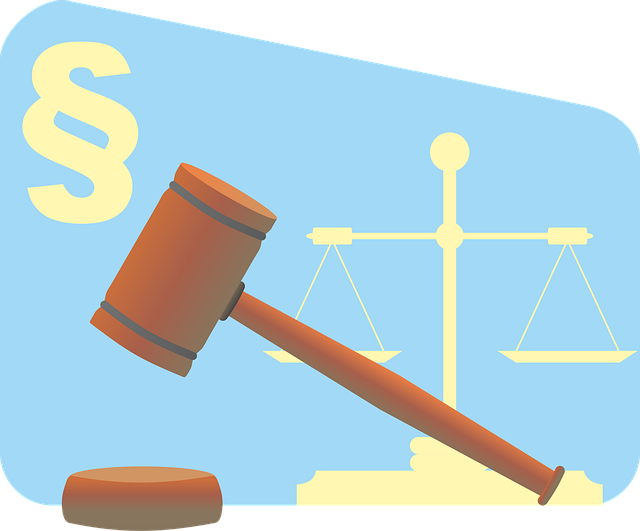In Environmental Crime Trials, understanding Constitutional Protections in Criminal Defense is key. The U.S. Constitution offers crucial safeguards like the Fifth Amendment against self-incrimination and the Sixth Amendment right to counsel. Lawyers must protect clients from illegally obtained evidence and maintain privileged communications while navigating complex legal landscapes. Defendants face unique challenges with far-reaching implications, requiring a blend of ecological science knowledge and legal expertise. Strategies focus on achieving environmental justice while upholding these protections through meticulous planning and innovative thinking.
Environmental Crime Trials shine a spotlight on criminal activities that harm our planet, from pollution to habitat destruction. This complex legal landscape demands specialized understanding. In this article, we explore the intricate world of Environmental Crime Trials, delving into the legal framework and Constitutional Protections for Criminal Defense. We also analyze challenges and strategies for navigating these high-stakes cases, providing insights crucial for both legal professionals and folks concerned about environmental justice.
- Understanding Environmental Crime Trials: A Legal Framework
- Constitutional Protections for Criminal Defense in These Cases
- Challenges and Strategies for Navigating Environmental Law Cases
Understanding Environmental Crime Trials: A Legal Framework
Environmental Crime Trials represent a unique intersection of environmental law and criminal justice. These trials involve prosecuting individuals or corporations accused of violating laws designed to protect our natural resources, ecosystems, and public health. Understanding the legal framework behind these cases is crucial for both prosecutors and defenders. The U.S. Constitution provides several protections in criminal defense, ensuring fair trials and due process rights for all accused persons.
Within this framework, environmental crimes often fall under federal jurisdiction, with agencies like the Environmental Protection Agency (EPA) playing a significant role in investigation and prosecution. Achieving extraordinary results in these trials necessitates a deep understanding of both the specific environmental regulations at play and the broader constitutional protections. Philanthropic and political communities have increasingly recognized the importance of holding offenders accountable for these crimes, which can have profound impacts on vulnerable populations and ecosystems. White-collar defense strategies, therefore, must adapt to address these complex legal landscapes, ensuring that rights are balanced with the need for environmental justice.
Constitutional Protections for Criminal Defense in These Cases
In Environmental Crime Trials, understanding Constitutional Protections for Criminal Defense is paramount. Accused individuals, whether from corporate or individual backgrounds, benefit from the due process clause and right to a fair trial enshrined in the U.S. Constitution. These protections ensure that evidence used against them is obtained legally and that their rights are upheld throughout the legal process. The Fifth Amendment’s guarantee against self-incrimination and the Sixth Amendment’s right to counsel are crucial aspects of white-collar defense strategies across the country.
The complexity of environmental crimes necessitates a thorough understanding of these protections. Lawyers specializing in white-collar defense must navigate intricate legal landscapes to ensure their clients’ rights are safeguarded. This includes protecting against illegally obtained evidence, ensuring proper notification and disclosure, and maintaining the confidentiality of privileged communications. By availing themselves of these Constitutional Protections in Criminal Defense, both corporate and individual clients can navigate environmental crime trials with a strong foundation of legal security.
Challenges and Strategies for Navigating Environmental Law Cases
Navigating Environmental Law cases presents unique challenges for both prosecutors and defenders. Defendants often face complex accusations with far-reaching implications, requiring a deep understanding of ecological science alongside legal expertise. One key consideration is balancing the need for environmental justice with ensuring Constitutional Protections in Criminal Defense. Accused individuals may employ strategies such as challenging the admissibility of evidence or leveraging scientific debates to avoid indictment, aiming for achieving extraordinary results.
These cases demand meticulous planning and innovative thinking. For instance, successful defense strategies might involve scrutinizing data methodology, questioning expert witnesses, and highlighting the potential economic impacts on defendants, thereby positioning environmental charges as white collar and economic crimes. This nuanced approach requires a delicate balance, ensuring both environmental accountability and adherence to legal due process.
Environmental crime trials, while complex, offer a crucial legal framework to hold perpetrators accountable for their impact on our planet. Understanding the nuances of these cases, including constitutional protections for criminal defense, is essential for both prosecutors and defendants. As environmental laws continue to evolve, so too must the strategies employed to navigate these challenges. By recognizing the specific protections afforded to defendants under the constitution, legal professionals can ensure fair trials and foster a more sustainable future.






